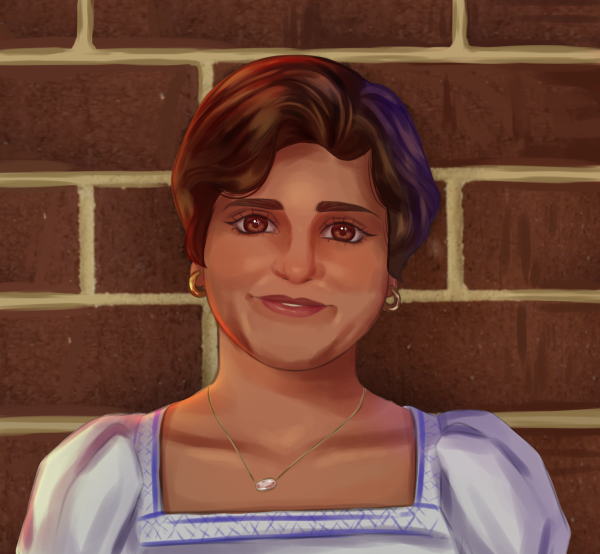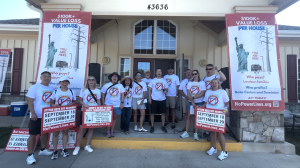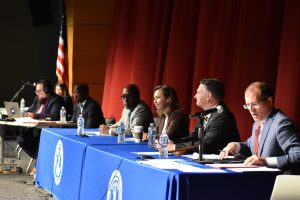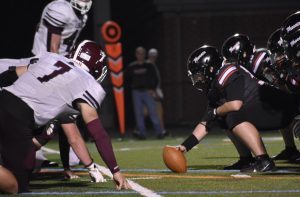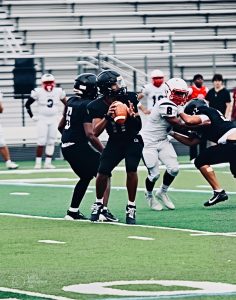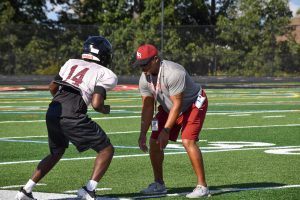Talking to Something That Can’t Talk Back: The Story of Sophie King
Sophomore Sophie King has been riding horses for six years, and she found it relaxing and believed that it taught her many vital life skills, such as problem-solving.
June 10, 2023
Walk in. Grab the saddle and tack. Groom the horse. Tighten the girth. Ride.
Twice a week, sophomore Sophie King enters The Stables at Wulf Crest Farm and follows this routine to immerse herself into the calming art of horseback riding for the next two hours. “[Riding horses] is an extreme mental reset and it allows you to not think about anything else for the two hours that you’re there,” King said. “It’s like learning a new language. You have to learn how to communicate with something that doesn’t know how to talk to you.”
King started riding horses shortly after she turned 10. Her mom, who rode horses as a child in the Netherlands, is her main inspiration. What started as a hobby turned into a long-lasting passion. King finds riding healing. “Horseback riding is very much a therapeutic experience,” she said. “There are a lot of people who don’t have disabilities that find it extremely therapeutic; there are a lot of people with disabilities who do horseback riding to help calm [themselves]. There’s a specific riding center called “Sprout” and that’s all they do. There have been experiments in the past where prisoners do therapy riding with horses and it [calms] their brains and [gets] them out of whatever [mindset] they’re in.”
Horseback riding allows King to focus on only that activity and forces her to lose any feelings of selfishness. “It’s such a release because you literally can’t think about anything else,” King said. “You can’t be worried about you. It’s not about you anymore, it’s about this animal that you have to figure out how to communicate with. It’s no longer about what you want, or what you need.”
Research has shown that horseback riding has a significant positive impact on mental health and provides vital skills for the rider, like problem-solving. Riding a horse requires the rider to think fast and be alert to the environment around you at all times. It also has psychological effects — for both the rider and the horse. Horses can sense their rider’s feelings at all times — whether it’s fear, stress, or anger. “Every emotion that comes off of you, they feel [it],” King said. “If you’re nervous, they’re going to freak. If you are angry, they’re going to get scared. If you are overcompensated, they can feel that; they’re going to be like ‘What’s wrong?’ So you have to be in complete control of your emotions to be able to handle them because they rely on you for everything.”
Horseback riding allows King to form bonds and learn from the animals. “You become extremely attached and form extremely strong bonds because you are talking without speaking,” she said. “It teaches you how to read body language [and] it teaches you how to control yourself. It teaches you so much about who you are and how to be a good human being.”
At Wulf Crest Farms, King’s job is to school, or train, the horses. “[I make sure] that they stay up to par and that they are always getting a good amount of knowledge to work, because a lot of kids who don’t know how to ride, ride them, and the [horses] need someone to re-teach them, sometimes,” she said.
After high school, King plans to get a job and work in the cyber security field, which she hopes will allow her to go to college for horseback riding and farrier, which is hoof and nail care.
King recommends riding for everyone to try at least once. “It’s so different [from] being in a team sport,” she said. “Even though people like to [say], ‘Oh, this isn’t a team sport,’ it is a team sport and in a completely different way than any team sport could ever be. So many people don’t understand that and they still ride horses and it shows, but the people that do [understand it], it’s amazing.”















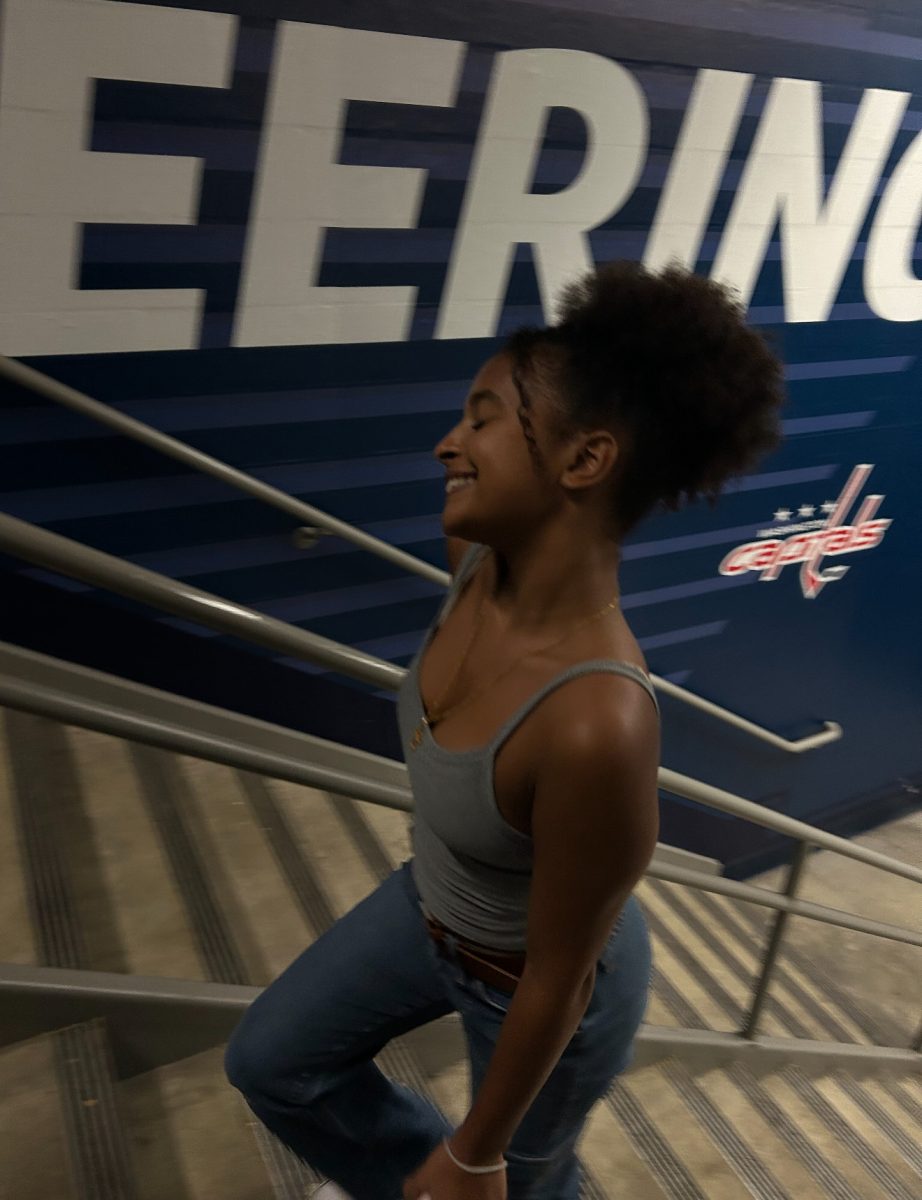



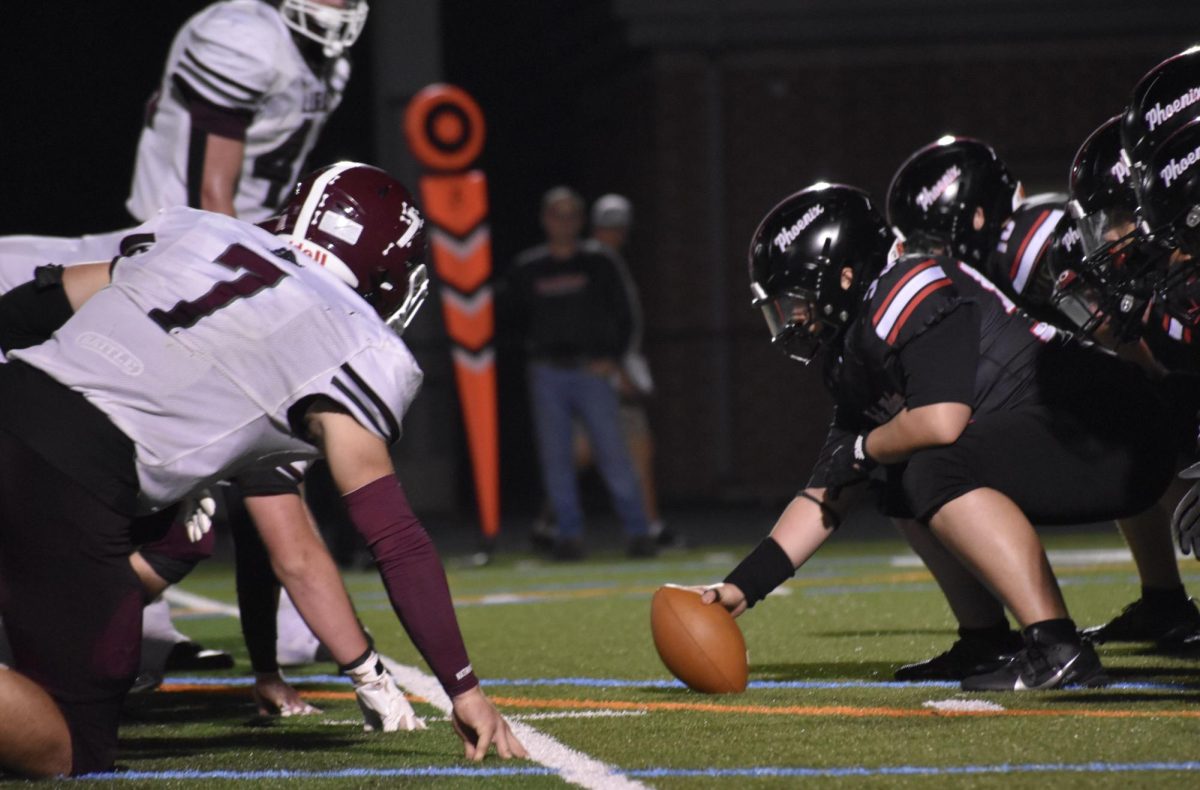





![The Phoenix varsity volleyball team lines up for the national anthem. “We were more communicative [with each other] during this game, and I feel like we kept our energy up, especially after the first set,” senior Jessica Valdov said.](https://theblazerrhs.com/wp-content/uploads/2024/10/DSC_0202-1200x800.jpg)










![Junior Alex Alkhal pitches the ball. “[I] just let it go and keep practicing so we can focus on our goal for the next game to get better as a team,” Alkhal said.](https://theblazerrhs.com/wp-content/uploads/2025/05/DSC_0013-1-1200x929.jpg)


















